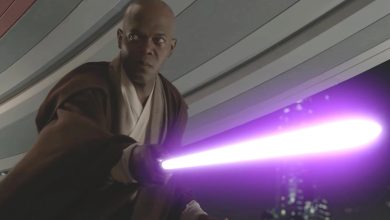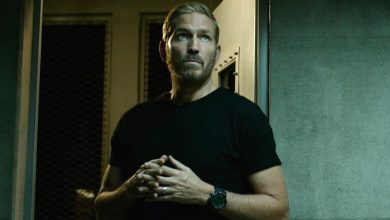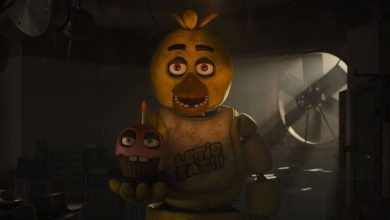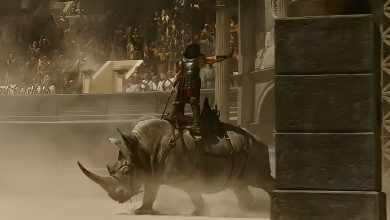Ghostbusters: Frozen Empire Review – Bustin’ Made Me Feel… Meh
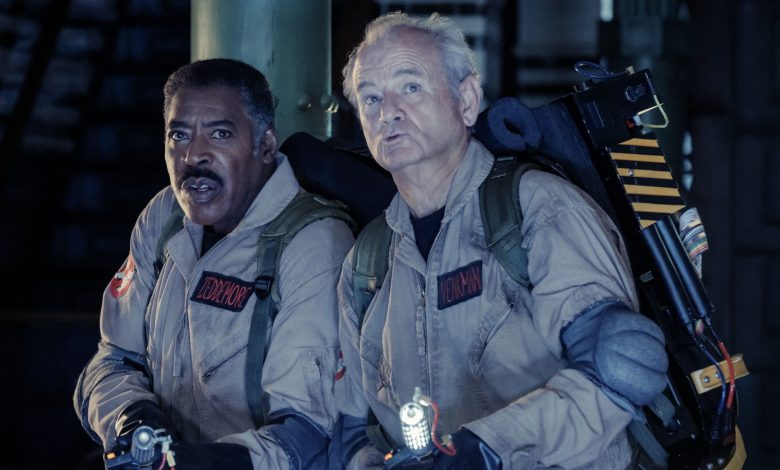

The widespread criticism of the “Ghostbusters: Frozen Empire” trailer, that it looked like the filmmakers thought they were creating the next part of a sci-fi saga rather than a comedy one, bears out in the finished product. It’s a movie that takes itself more seriously than any “Ghostbusters” movie should, with any laugh lines delivered exclusively by secondary characters introduced as comedy relief. It doesn’t feel tinkered with by the studio to resemble a conventional blockbuster though: this is an identity crisis all of its own making.
Despite opening with a Robert Frost quote (get it?) and an icy prologue set in 1904, the “Frozen Empire” promised in the title doesn’t materialize until the last half hour. Before then, we’re reintroduced to the Spengler family, who’ve relocated from rural Oklahoma to the famous Ghostbusters Fire House in Manhattan and are already semi-established for capturing all manner of paranormal beasts around New York City. Threatened by eternal Ghostbuster-hater Walter Peck (William Atherton) to immediately cease what they’re doing due to the unpaid labor of their 15-year-old daughter, they find that they’re urgently needed thanks to the discovery of an ancient orb handed into Ray Stantz’s (Dan Aykroyd, surprisingly a main character) pawn shop by slacker Nadeem (Kumail Nanjiani). This orb functions as a prison for an ice demon who hopes to resurrect a ghost army to take over the city once unleashed. This villain, Garraka, is a sincere attempt at making a terrifying foe, with none of the cutesy child-friendliness of Slimer or the Mini-Pufts — but, because the filmmakers are aware of the need to attract a young audience, the genuine threat of a monster that can turn anybody into ice and smash them into pieces within seconds remains under-utilized.
Now that we’ve discussed that, let’s go back to the queer stuff. Bearing in mind the famous tweet that to be successfully queer-baited by the Marvel Cinematic Universe is like losing chess to a dog as I dive into this here, director Gil Keenan and co-writer Jason Reitman do all they can to make Phoebe’s sudden close friendship with ghost teen Melody (Emily Alyn Lind) read as romantic without going as far to say such. There’s an intensity to their interactions and their coded dialogue about them both feeling like outsiders, a broad euphemism in the same way “Mutants” became a catch-all allegory for LGBTQ+ identifying people in Bryan Singer’s “X-Men” movies.
Without seeing the portrayal of this relationship, this will understandably read like a gay writer trying to find anything interesting to unpack in a review of a generally underwhelming sequel, especially considering there’s no dialogue within their direct interactions to suggest anything other than friendship. But consider Phoebe’s sudden desire to transform herself into a ghost after meeting the first person she claims to understand her, even going so far as to ask Ray Stantz if he’s ever thought about becoming a ghost — yes, this allegory is written vaguely enough to scan as a trans one too — and it becomes clear that the writers want to tell a story about a young person grappling with their identity, but in a manner toothless enough to evade scrutiny from censors in China.
